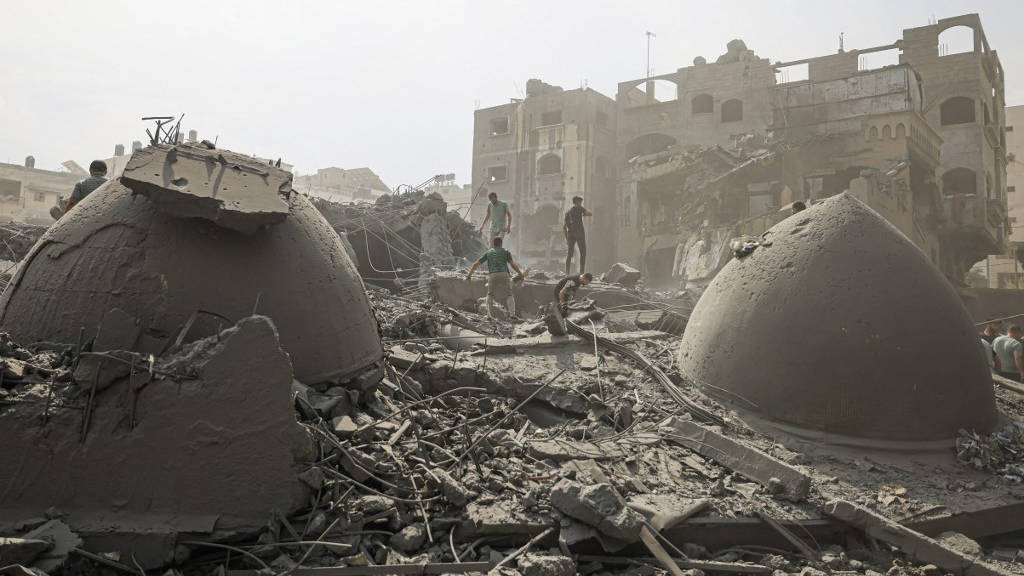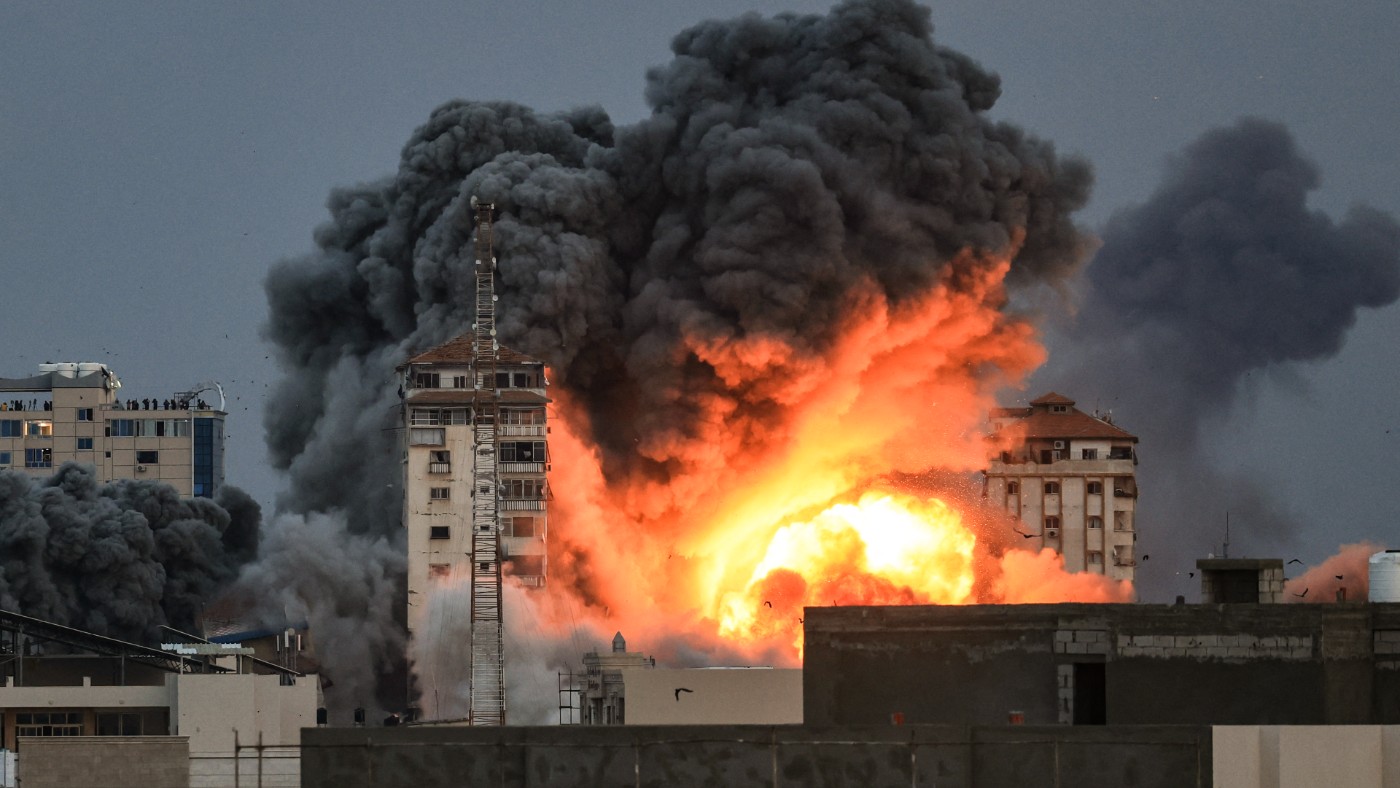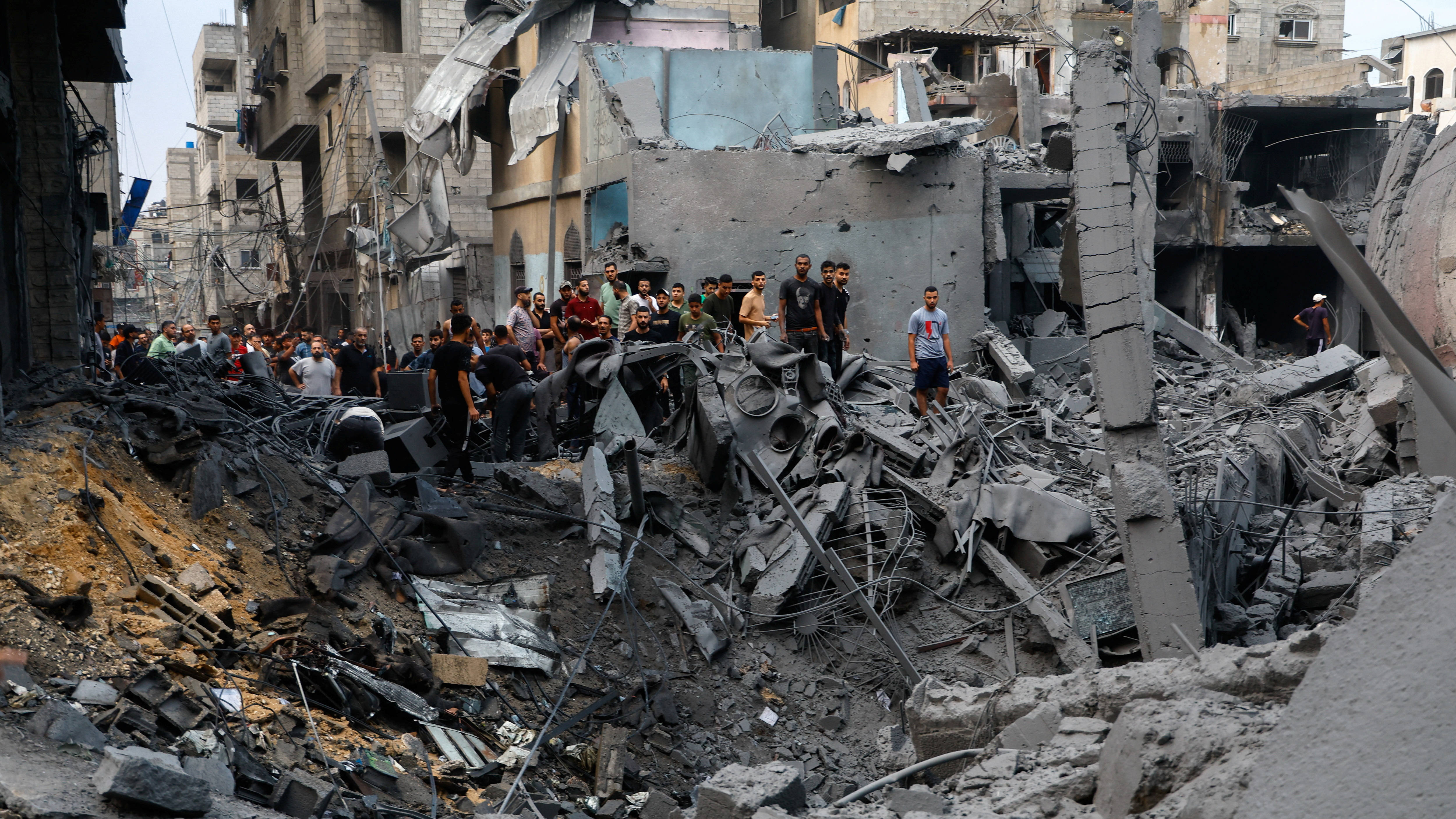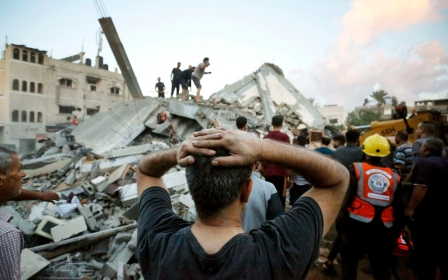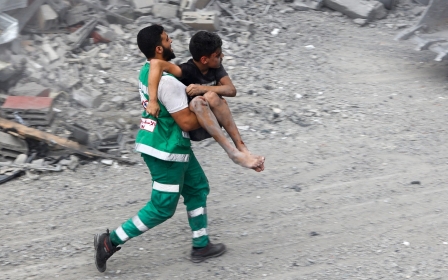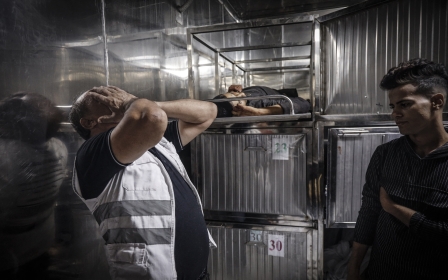Israel-Palestine war: The Gaza civilian buildings bombed by Israeli army
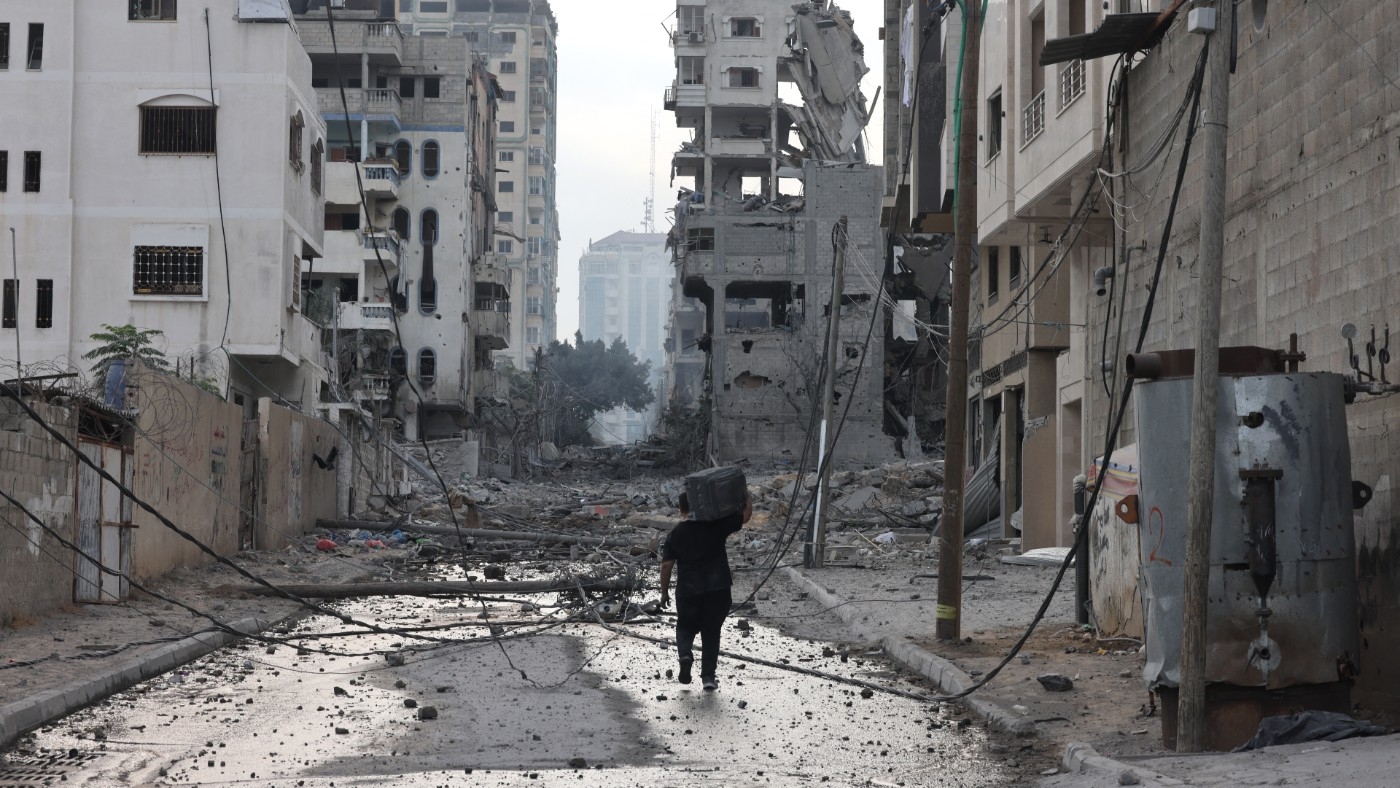
Israel is carrying out a widespread, systematic bombing campaign of Gaza’s civilian infrastructure, following the Hamas-led attack of 7 October.
Air strikes on the besieged Gaza Strip began on Saturday and have continued since then. On Monday, Israel cut off all electricity, food, gas and water in Gaza, severely hindering medical teams’ efforts to save wounded patients.
On Tuesday, Gaza's health ministry said that at least 770 Palestinians had been killed and 4,000 wounded in the strikes.
Israeli Defence Minister Yoav Gallant has referred to Palestinians as "human animals" and called for a "complete siege" of Gaza, with Israel calling up 300,000 reserves and mobilising its forces along the Strip.
As of Monday, the Israeli air force had dropped some 2,000 munitions and more than 1,000 tonnes of bombs on Gaza, the army said, having shelled 20 high-rise residential buildings, mosques, hospitals, banks and other civilian infrastructure.
New MEE newsletter: Jerusalem Dispatch
Sign up to get the latest insights and analysis on Israel-Palestine, alongside Turkey Unpacked and other MEE newsletters
Middle East Eye takes a look at the civilian infrastructure that has been demolished in Israel’s attacks.
Mosques
At least 10 mosques have been demolished in Israel’s bombardment of Gaza so far, according to the Islamic affairs ministry in the enclave.
One of the most prominent to be hit is the Ahmed Yasin mosque, located in al-Shati refugee camp.
The al-Abbas mosque, located in the mainly residential al-Rimal neighbourhood, was also demolished.
Other mosques that have been heavily damaged, or completely flattened, include al-Sousi, al-Yarmouk, al-Amin Muhammed, Mohammed al-Habib and the al-Gharabi mosques.
Palestine’s interior ministry spokesperson said that Israel is increasing its aggressive bombardment of Gaza and that “most of the targets are towers, residential buildings, civil service facilities and mosques”.
Radio station and Islamic ministry offices
Palestine’s Ministry of Islamic Affairs in Gaza announced on Monday that Israeli bombing destroyed the headquarters of the Holy Quran radio station.
They also reported that their ministry offices were heavily damaged.
Banks
The Islamic National Bank of Gaza was bombed during live television coverage of Israel’s bombardment.
A correspondent for Al Jazeera was reporting live on the strikes, when in the background large plumes of smoke and fire emerged from the bank following the bombing.
Further footage showed a second bank in the Rimal district of Gaza City being struck.
Universities
Three universities have been badly hit.
The Islamic University of Gaza was severely damaged, with video footage showing the smoking building.
The university has around 17,000 students and was one of the first higher education institutions to be established in the Gaza Strip.
Residential buildings
A year after it was last bombed, the Palestine Tower, a 14-storey residential building in the middle of Gaza City with panoramic views, has been flattened.
Survivors told Middle East Eye that they had saved and borrowed thousands of dollars to rebuild their homes after Israel’s last bombing.
Residents of al-Rimal and Tal al-Hawa neighbourhoods evacuated their homes after warplanes bombed residential towers consecutively.
The Jabalia camp in northern Gaza has been totally wiped out after an Israeli air strike ripped through the crowded residential area, killing and wounding dozens of people.
Ambulances and civil defence teams were forced to evacuate the camp as Israeli air strikes continued.
The camp, one of Gaza's largest, became a charcoal-coloured, unrecognisable mess after the local market and homes were levelled, with damaged cars and personal belongings littering the streets.
Videos and photos of the scene showed bodies strewn amidst the rubble, with people frantically searching for their loved ones.
The mostly residential al-Yarmouk neighbourhood was reduced to rubble, with large apartment blocks seen crumbling in video footage shared online.
Hospitals
Numerous hospitals and medical centres have been attacked.
Palestine's health ministry announced that the children’s section of the Shifa hospital complex had been damaged by Israel's bombing and that the shelling had caused parts of the ceiling to collapse and fall.
It also said that the Beit Hanoun Hospital had been rendered out of service due to constant Israeli bombing in close proximity to the building.
Medecins Sans Frontieres (MSF), the humanitarian organisation also known as Doctors Without Borders, said that Israeli forces struck Gaza’s Indonesian hospital, as well as an ambulance in front of the Nasser Hospital in southern Gaza.
The group asked all parties to respect healthcare buildings and infrastructure, which they said “must remain a sanctuary for people seeking treatment”.
MSF said it had been providing surgical and inpatient care in Gaza’s al-Awda hospital since Saturday, but that the group had faced difficulties due to Israeli bombardment.
The Palestinian health minister, Mai al-Kaila, appealed to the international community “to take urgent action to stop the occupation’s aggression against treatment centres” in Gaza.
In a statement published on Monday, the doctor called on Israel to stop attacking ambulances, medical centres and medical crews in the besieged Strip.
“The occupation deliberately bombs hospitals and kills crews. This is a clear violation of all international laws and norms,” al-Kaila said.
Middle East Eye delivers independent and unrivalled coverage and analysis of the Middle East, North Africa and beyond. To learn more about republishing this content and the associated fees, please fill out this form. More about MEE can be found here.


